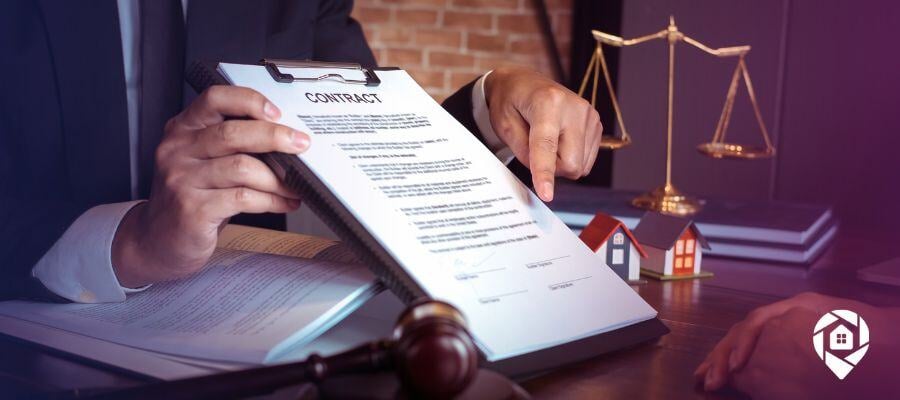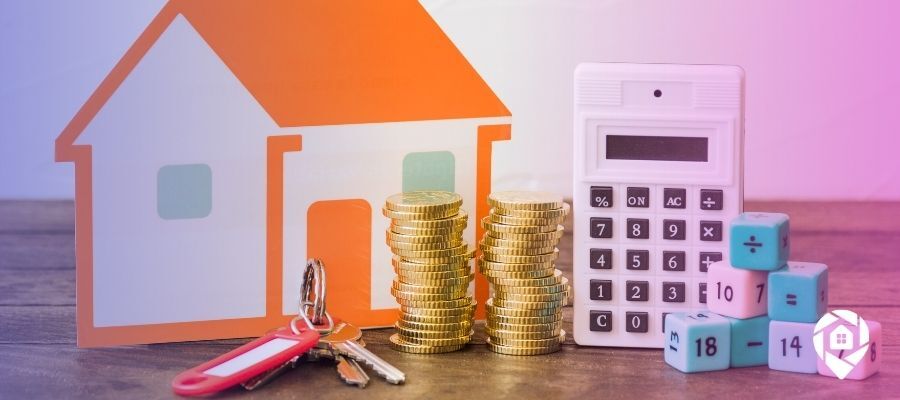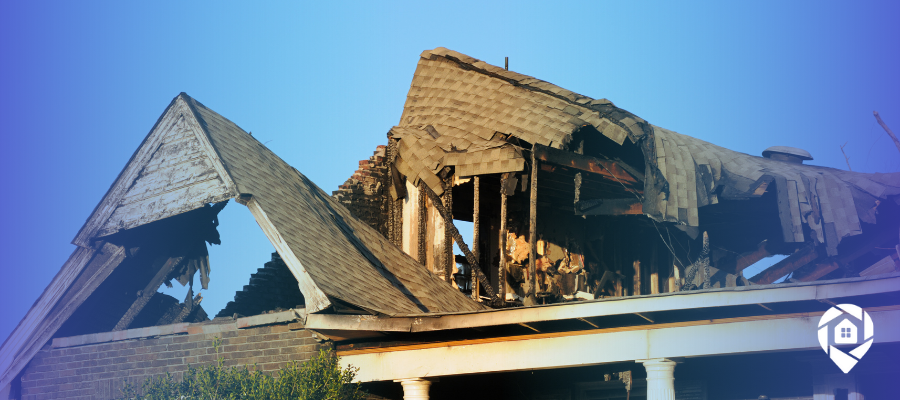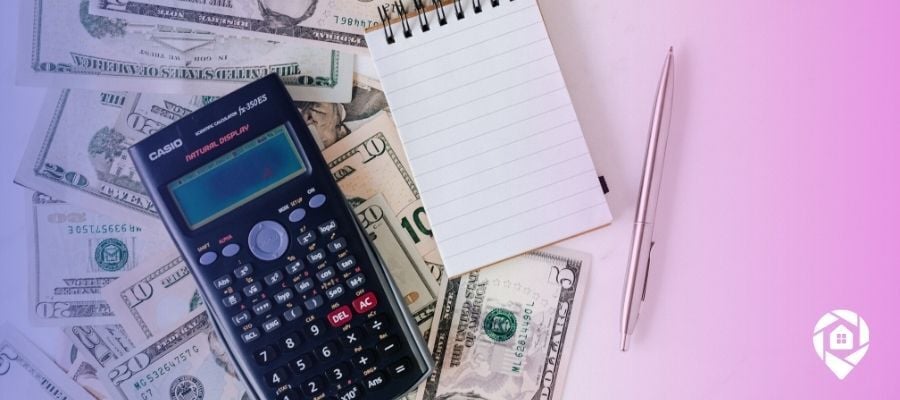
Foreclosure Home Investment: Unmasking Risks & Rewards

Real estate is one of the most popular ways to build wealth, and there are many paths you can take. One path that often stands out is investing in foreclosed homes. These properties are often sold at lower prices, which can make them look like a great deal. But like any investment, there are both rewards and risks.
So, is buying a foreclosure a smart move? Or are there hidden challenges you should know about first?
In this guide, we’ll break down everything you need to know about foreclosure home investment—what it means, what to expect, and how to decide if it's right for you. Whether you’re a first-time homebuyer or a real estate investor, understanding the pros and cons of buying foreclosure homes will help you make a smarter decision with your money.
What is a Foreclosed Home?
Before you decide to buy foreclosure homes, it’s important to understand exactly what they are and how the process works.
The Basics of Foreclosure
A foreclosed home is a property that was taken back by a bank or lender. This usually happens when the homeowner can't make their mortgage payments for a long time. After several missed payments, the bank takes legal steps to take ownership of the house. Once the bank owns it, they often try to sell it quickly to recover the money they’re owed.
Why Are These Homes Cheaper?
Because banks want to sell foreclosed homes as fast as possible, they often list them at lower prices than regular homes. This can make buying a foreclosed home look like a great deal—especially if you're trying to invest with a smaller budget. But these lower prices can sometimes come with hidden issues, like damage or repairs that need to be done.
Where to Find Foreclosed Homes
You can find foreclosed homes listed online, at auctions, with real estate software like DealMachine, or through real estate agents who specialize in them. Some websites even focus only on foreclosures. Just keep in mind, the competition can be tough, especially if the deal is good.
Understanding what is a foreclosed home is the first step in deciding if this kind of investment is right for you.
The Potential Rewards of Buying a Foreclosure
One of the biggest reasons people get interested in buying foreclosure homes is the chance to get a great real estate deal. But what exactly are the rewards—and are they worth it?
Lower Purchase Prices
The most obvious benefit is the price. Foreclosed homes are often sold below market value. Banks want to get these properties off their hands quickly, which means you could buy a house for much less than a similar home in the same neighborhood. This makes it easier to build equity or flip the home for a profit.
Investment Potential
Buying a foreclosure can be a smart long-term move. If you’re able to fix up the home and increase its value, you might see a big return on your investment. Some people even turn foreclosed homes into rental properties, creating a steady income stream.
Entry into Competitive Markets
Foreclosures can offer a way into areas that might otherwise be too expensive. You could end up with a home in a great location—something that might not have been possible without the discount.
Just remember, these rewards come with risks. That’s why doing your homework is so important before making a decision.
The Risks Associated with Buying a Foreclosed Home
While the idea of buying a home at a discount sounds exciting, there are several risks that come with foreclosed properties. It’s important to know these upfront so you’re not surprised later.
Hidden Damage and Repairs
One of the biggest risks is the condition of the home. If the previous owner couldn’t afford their mortgage, they likely didn’t have the money to keep up with repairs either. Some homes are left in poor condition—with broken plumbing, old roofs, or even vandalism. Since most foreclosed homes are sold as is, the new buyer is responsible for all repairs, no matter how costly.
Complicated Buying Process
Buying a foreclosed home isn't always a simple transaction. It may take longer than a regular sale, especially if it involves an auction or is owned by a bank. You may have to deal with more paperwork, extra legal steps, and slower response times. This can be frustrating, especially if you're eager to move in or start renovations.
Competition from Other Buyers
Many investors and house flippers are looking for deals just like you. In popular areas, it’s common to face tough competition. You might have to act fast or offer more money just to stay in the game.
Possible Occupancy Problems
In some cases, a foreclosed home might still have people living in it—like former owners or tenants who haven’t left yet. This can make the process more stressful, as you may need to take legal steps to remove them, which adds time and cost to your purchase.
Knowing these risks doesn’t mean you shouldn’t buy a foreclosed home. It just means you should go in prepared and get help from real estate professionals who understand the process.
Considerations Before Investing in Foreclosure
Before jumping into a foreclosure purchase, it’s important to slow down and think through all the details. While the price might be tempting, doing your research can save you from big headaches later.
Always Inspect the Property
Before you buy, try to get a full home inspection. Some foreclosed homes may have hidden problems like mold, plumbing issues, or damaged foundations. If the home is sold “as is,” the bank won’t fix these things. An inspection can help you understand what repairs you’ll need to make—and how much they might cost.
Research the Neighborhood
A low price isn’t helpful if the home is in a neighborhood with high crime rates, poor schools, or declining home values. Look at other homes in the area, talk to neighbors if possible, and see if the area is growing or struggling. A good location can make a big difference in your long-term return.
Work with Professionals
Foreclosures come with legal and financial steps that can be tricky. A real estate agent who knows the foreclosure market can guide you through the process. You might also want help from a lawyer or financial advisor to avoid costly mistakes.
Know Your Budget and Plan Ahead
Ask yourself questions like, “Is buying a foreclosure a good idea for my goals?” If you plan to fix and flip the house, make sure you have money for renovations and enough time for the project. If you're planning to live in the home, make sure it meets your needs beyond the price tag.
Foreclosed homes can be smart investments—but only if you take the time to plan carefully, ask questions, and think ahead.
Financing a Foreclosed Home
Buying a foreclosed home doesn’t always mean paying in cash. In fact, many buyers use loans to make the purchase. But financing a foreclosure can be a little different from buying a regular home.
Traditional Loans
Some buyers use regular mortgage loans, like a conventional loan or an FHA loan. However, banks may be more strict with foreclosed properties. They’ll want to be sure the home is in good condition. If it needs a lot of repairs, it might not qualify.
Renovation Loans
If the home needs fixing, you might look into a renovation loan, like the FHA 203(k) loan. This type of loan lets you borrow money to both buy the house and make repairs—all in one package. It's a great option for buyers who want to improve the property right away.
Cash Offers
Cash offers are often more attractive to banks because they close faster and involve less paperwork. Investors who have cash on hand may have a better chance of getting their offer accepted—especially in a competitive market.
Before choosing a loan, talk to a lender who has experience with foreclosures. They can help you understand your best options and guide you through the process.
Is Buying a Foreclosure Right for You? A Quick Self-Assessment
Foreclosed homes can offer great deals—but they’re not for everyone. Before diving in, ask yourself a few important questions to see if this type of investment fits your goals.
Are You Okay with Fixer-Uppers?
Many foreclosed homes need repairs. If you enjoy home projects or can afford to hire contractors, you might be a good fit. If you’re looking for move-in ready, this may not be the right choice.
Do You Have Extra Money Saved?
Even if you get a great price, you’ll likely need money for repairs, inspections, and closing costs. Make sure your budget includes some wiggle room for surprises.
Are You Patient and Flexible?
The foreclosure buying process can take longer than usual. Delays, paperwork issues, or competition from other buyers can be frustrating. If you’re flexible with your timeline, it will be easier to handle.
Are You Willing to Do Research?
Buying a foreclosure takes more homework than buying a traditional home. You’ll need to learn about the property, the neighborhood, and any legal concerns.
If you answered “yes” to most of these questions, buying a foreclosure might be a smart move for you! Check out the video below for 6 ways you can help someone in foreclosure.
Final Thoughts
Buying a foreclosure home can be a rewarding investment if you’re prepared for the risks and ready to put in the work. With careful planning, smart financing, and the right support, it’s possible to turn a distressed property into a valuable asset. Do your homework, stay realistic, and make choices that align with your financial goals.

About Samantha Ankney
Samantha is the Social Media Manager at DealMachine, where she oversees all social media strategies and content creation. With 4 years of experience at the company, she originally joined as a Media Specialist, leveraging her skills to enhance DealMachine's digital presence. Passionate about connecting with the community and driving engagement, Samantha is dedicated to sharing valuable insights and updates across all platforms.



